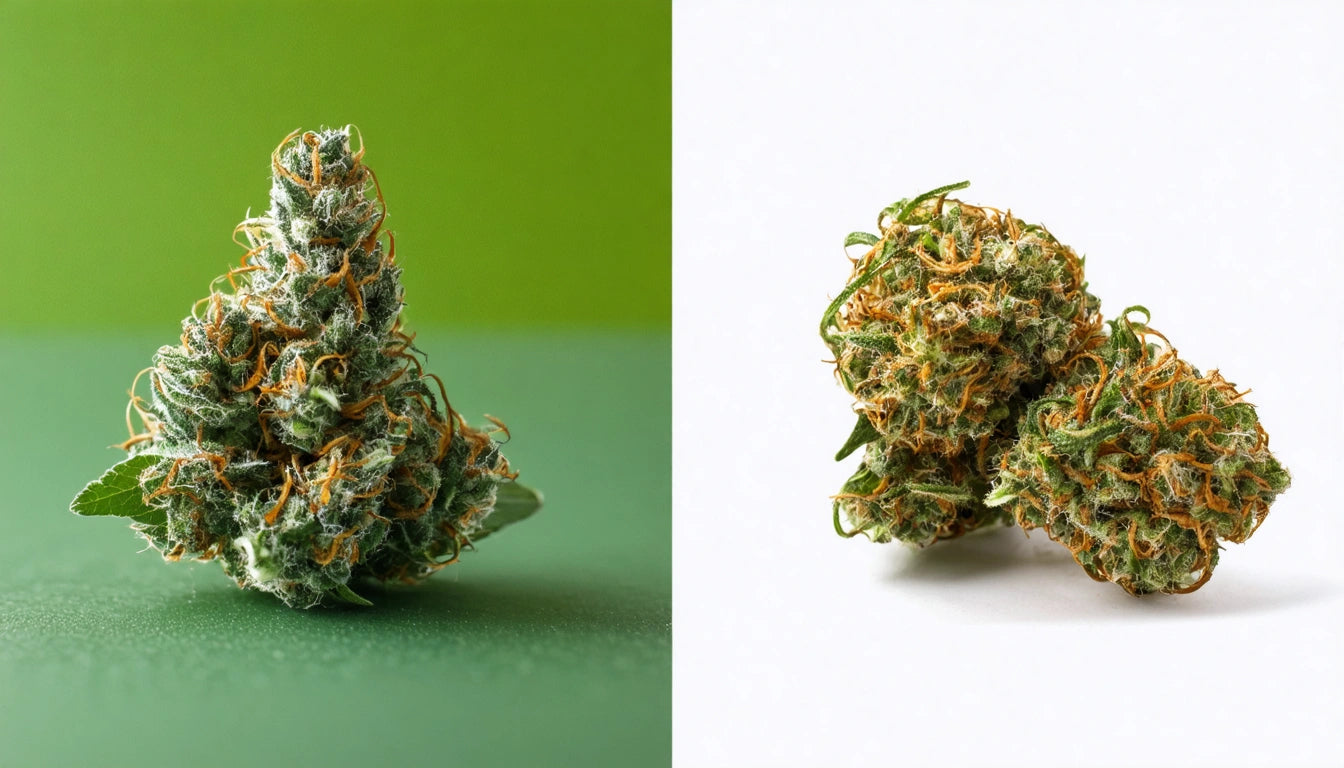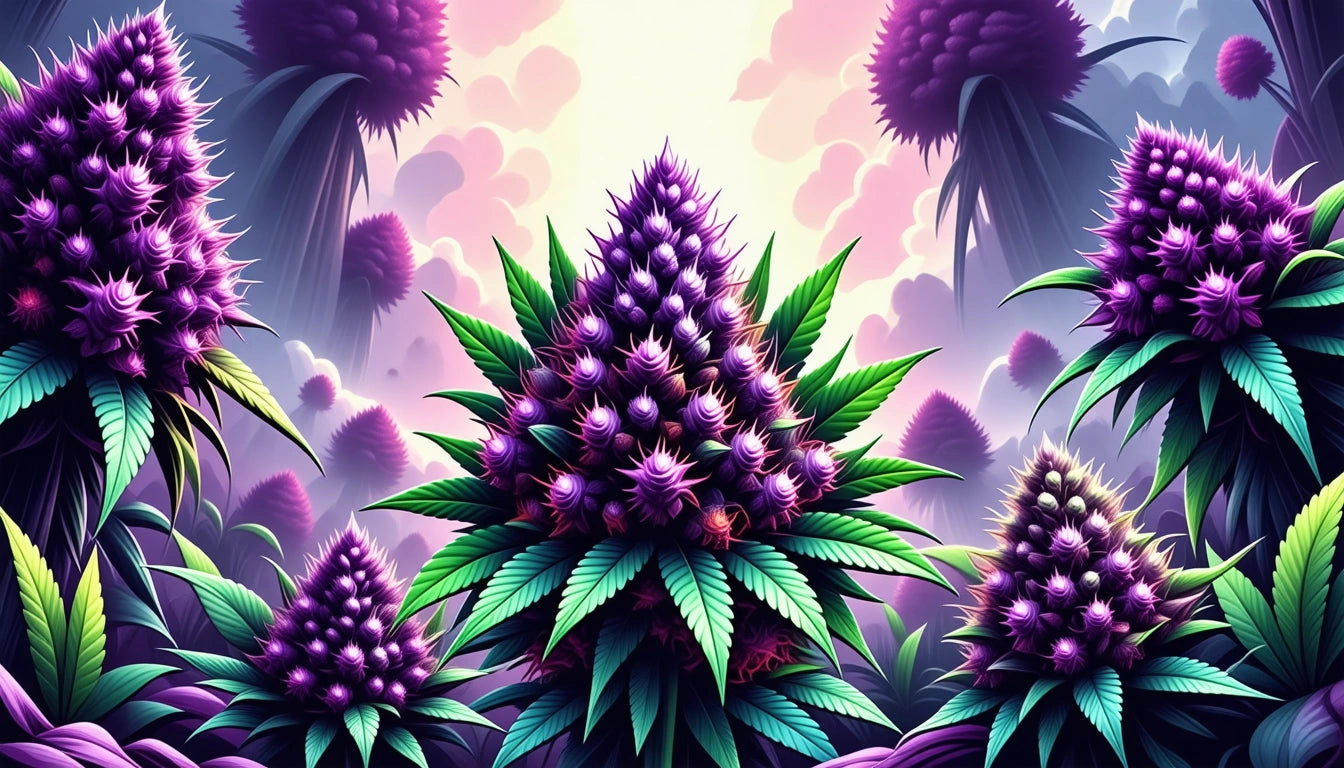Table of Contents
- THC and THCa Basics: Understanding the Cannabinoids
- Chemical Differences Between THC and THCa Flower
- Effects Comparison: THC Flower vs THCa Flower
- Legal Considerations for THC and THCa Products
- Choosing Quality: What Makes the Best THC and THCa Flower
- Consumption Methods and Storage Recommendations
- Future Market Trends in THC and THCa Flower Products
Understanding the Differences and Benefits of THC and THCa Flower
Cannabis consumers today face an increasingly diverse market of products, with THC and THCa flower options being among the most discussed. Understanding the distinction between these two cannabinoid forms is essential for both recreational users and medical patients seeking specific effects. This guide explores the fundamental differences, benefits, and considerations when choosing between THC and THCa flower products.
THC and THCa Basics: Understanding the Cannabinoids
THC (tetrahydrocannabinol) is the primary psychoactive compound in cannabis that produces the characteristic "high" effect. THCa (tetrahydrocannabinolic acid) is the precursor to THC found naturally in raw and live cannabis plants. This distinction is crucial as it affects everything from legal status to user experience.
In raw cannabis plants, THCa is abundant while THC levels are minimal. THC is formed when THCa undergoes decarboxylation, a process triggered by heat that removes a carboxyl group from the THCa molecule. This transformation typically occurs through smoking, vaping, or cooking cannabis.
Chemical Differences Between THC and THCa Flower
The molecular structures of THC and THCa differ in significant ways that affect their interaction with the human endocannabinoid system. Understanding these differences helps consumers make informed choices about which product might better suit their needs.
THCa Structure and Properties
- Contains an additional carboxyl group (COOH)
- Non-psychoactive in its raw form
- More stable at room temperature
- Potential anti-inflammatory and neuroprotective properties
THC Structure and Properties
- Lacks the carboxyl group found in THCa
- Psychoactive, binds directly to CB1 receptors
- Less stable, degrades to CBN over time
- Known for pain relief, appetite stimulation, and mood alteration
Effects Comparison: THC Flower vs THCa Flower
The experiential differences between consuming THC flower and THCa flower are substantial and worth understanding before making a purchase decision.
THC Flower Effects
THC flower delivers the classic cannabis experience with psychoactive effects that can include euphoria, altered perception, relaxation, and in some cases, anxiety or paranoia at higher doses. THC percentages in flower typically range from 15-30%, with premium products sometimes exceeding these levels.
THCa Flower Effects
THCa flower, when consumed without decarboxylation (such as in raw juices or smoothies), provides potential therapeutic benefits without psychoactive effects. Many users report anti-inflammatory, neuroprotective, and anti-emetic properties. The best THCa flower products preserve these properties through careful cultivation and handling.
Legal Considerations for THC and THCa Products
The legal landscape surrounding cannabis products varies dramatically by jurisdiction, with THC and THCa products often falling under different regulatory frameworks.
In many regions, THCa flower exists in a legal gray area since it technically doesn't contain significant THC until heated. This has led to THCa flower availability in some places where traditional THC products remain restricted. However, regulations are constantly evolving, and consumers should stay informed about local laws.
Choosing Quality: What Makes the Best THC and THCa Flower
Whether seeking the best THC flower or THCa flower, several quality indicators apply to both product types:
- Trichome density and appearance
- Proper moisture content (not too dry or too humid)
- Aromatic terpene profile
- Absence of seeds, stems, and excess leaf material
- Clean cultivation practices (organic, pesticide-free)
- Third-party lab testing for potency and contaminants
For THCa-specific products, minimal exposure to heat during processing and storage is critical to preserving the THCa content. Common misconceptions about THCa often relate to its stability and conversion rate to THC.
Consumption Methods and Storage Recommendations
The method of consumption significantly impacts the experience with both THC and THCa flower.
THC-Focused Consumption
- Smoking (joints, pipes, bongs)
- Vaporizing (lower temperatures preserve more terpenes)
- Edibles (after decarboxylation)
- Concentrates (oils, waxes, shatter)
THCa-Focused Consumption
- Raw cannabis juicing
- Tinctures made without heat
- Raw cannabis smoothies
- Topical applications
Proper storage is essential for maintaining potency and preventing degradation. Both THC and THCa flower benefit from storage in airtight containers away from light, heat, and excess humidity. Understanding THC types helps consumers choose appropriate storage methods for their specific products.
Future Market Trends in THC and THCa Flower Products
The cannabis market continues to evolve with increased consumer education and product sophistication. Several trends are emerging in the THC and THCa flower segments:
- Cultivation methods specifically designed to maximize THCa production
- Specialized packaging that better preserves cannabinoid profiles
- Broader availability of lab testing for accurate THCa/THC ratios
- Increased focus on minor cannabinoids that work synergistically with THC and THCa
- Development of novel consumption methods that offer precise control over decarboxylation
As research continues and the best THC products evolve, consumers can expect more tailored options that address specific wellness and recreational needs. The distinction between THC and THCa products will likely become more refined, offering users unprecedented control over their cannabis experience.











Leave a comment
All comments are moderated before being published.
This site is protected by hCaptcha and the hCaptcha Privacy Policy and Terms of Service apply.